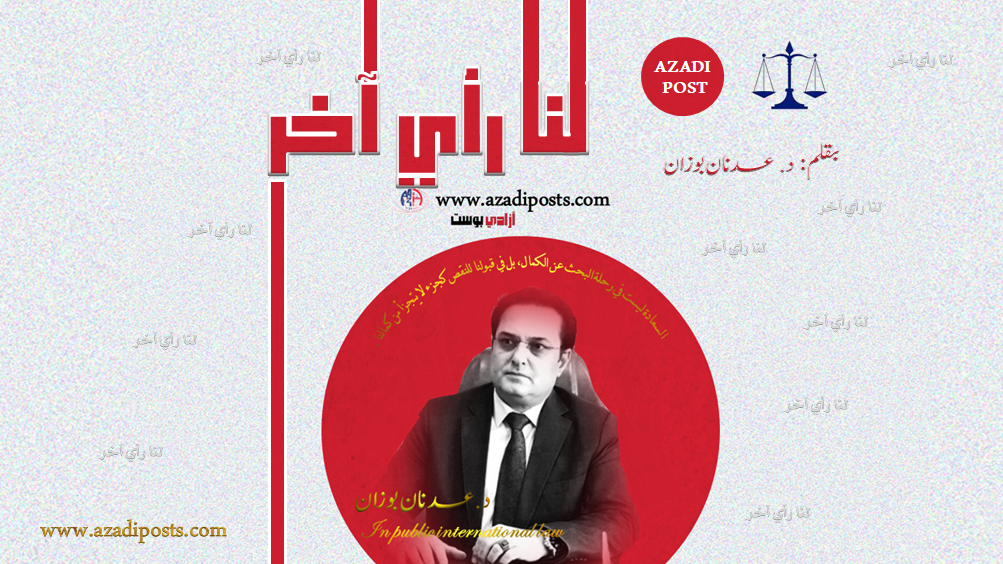Martyrs of the Word: The Kurdish Writer Is Only Honored After Death
- Super User
- لنا رأي آخر
- Hits: 3666

By Dr. Adnan Bozan
Why?
Why are we a people who do not love those who write for us while they are still alive?
Why do we leave our intellectuals alone in alleyways, writing their blood on walls—while we neither read, nor listen, nor reach out a hand?
Then, when they die... when the pen falls from their trembling fingers, we raise their pictures high, print their poems on buildings, and paint their faces on the walls of cities that ignored them their entire lives.
Why?
Is it only death that grants the Kurdish writer recognition?
Must the body be extinguished for us to light the poem?
Must the writer be lashed alive, so he may be hung as a martyr on the wall of memory?
How cruel is the homeland that sees you only when you die, and hears you only when you fall silent forever.
We bury them with our own hands, then scratch with our nails to unearth their names and showcase them at our festivals.
We are the first to abandon them—and the first to weep for them.
We didn’t kill them with bullets, but we killed them with silence, with neglect, with insult, with fear.
We left them prey to poverty, exile, and isolation.
We left them to resist the world alone, writing under the rain, cursed by all, while we watched from afar and said:
"This man has gone mad… Who does he think he is?"
And when he departs...
When his body declares exhaustion, and his eyes turn away from the homeland,
We suddenly begin composing poems about him:
"He was a genius… He was honest… His era never understood him."
As if we were not the ones who lived in his time.
As if we were not the ones who broke his pens.
Why do we love the Kurdish writer only when he dies?
Because he no longer disturbs anyone?
Because he no longer writes the truth?
Because he has become safe—a picture, a statue, harmless?
Oh homeland...
How many more martyrs of the word do you need?
How many more writers must write until their last breath—on half-eaten paper, with ink made of tears, in unheated rooms, without publishers, without prizes, without readers?
How many more poets must we bury before we realize that words need someone to embrace them, not just to wail over them when it's too late?
The Kurdish writer does not live his life—he lives his death while still alive.
He lives exiled in his own language, besieged in his homeland, alien among his people, crucified between hatred and mockery.
He is accused of betrayal because he writes about pain.
Accused of blasphemy because he shouts at a cruel god.
Accused of deviance because he does not bow to a party, a sheikh, or a power.
Then… his voice is lifted after death, carried on shoulders—
As if we are apologizing… but only after it no longer matters.
O Kurdish writer,
You who have no homeland to protect you, no newspaper to publish you, no eyes to listen to you—
Forgive us…
We only see you when you die.
Only love you when you can no longer respond.
Only understand you when you stop writing.
Sleep peacefully in your soil, O martyr of the word.
Here we are now, laying flowers on your grave, writing your name on a poster, crying abundantly…
But we never read you, never defended you, never believed in you.
We are the ones who killed you—and then mourned you.
We are the ones who crucified you—and then sang for you.
We are the ones who forgot you alive—and loved you dead.
Is this the fate of the Kurdish intellectual?
That his voice is not heard until it is broken?
That he is not honored until he becomes a statue with no tongue?
That he remains a martyr even as he writes, dying between lines, buried in his poems, only to have a monument raised for him by the roadside?
Yes… this is our fate as Kurds:
To love our martyrs—
But only after they are killed.
So who’s next?
Which writer will we betray alive, only to cry for him long after?
Which new pen will we break—then kiss its shattered remains once it is too late?
Every Kurdish writer knows the answer…
But he does not stop writing.
He knows he won’t be heard—but he writes.
He knows he will die—but he writes.
He knows love will come late—but he writes.
He writes...
So that the homeland does not die before he does


